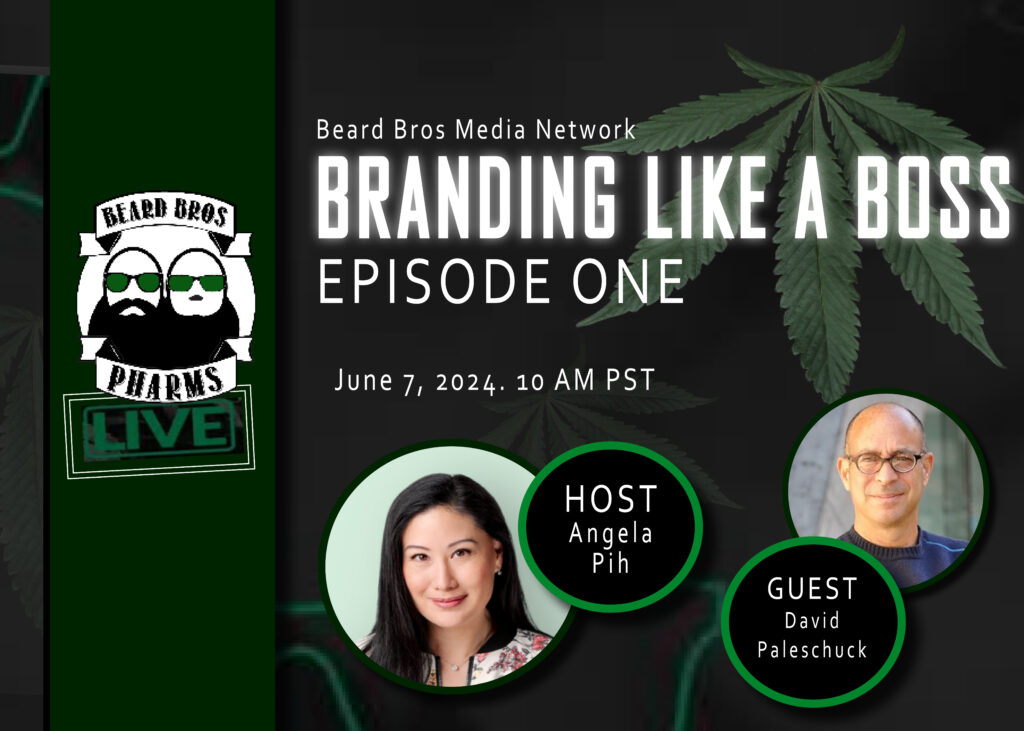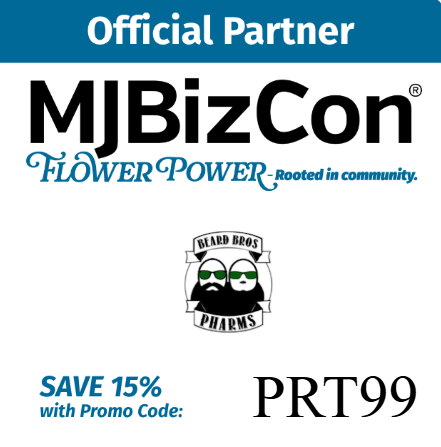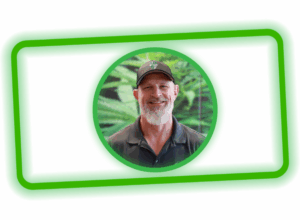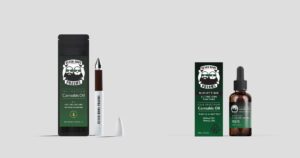The Beard Bros Media Network Live Series’ recent episode, Branding Like A Boss Episode 1, hosted by Angela Pih and featuring David Paleshuck, set out to converse about conversation and with this, change the language of the cannabis industry.
When cannabis customers’ and communities’ purchasing decisions are influenced by language, entrepreneurs, cannabis business owners and cannabis marketing professionals should focus on their art of conversation and put effort into their language.
Words Create Or Marginalize Cannabis Communities
“Words are really important because words do two things. They either create community or they marginalize communities,” said Paleschuck.. “They, too, either create audiences and transform them into family and communities, or they don’t.”
In response, Pih asked, “How does language play into keeping those people out. How does language matter in all of this?”
“The perfect brand starts off by saying, “Hey, who are your customers? Well, we know where our customers are. We know where they are. We know how to speak to them. We know how to show up next to them. They are our friends. They are our family. They are our community,” answered Paleschuck.
He continued, “And there’s very few cannabis brands that have done this or have connected beyond being a cannabis brand to engage with a core audience that feels they’re being spoken to in a way that is relevant and resonates with them.”
According to Paleschuck, if cannabis business owners can speak to consumers in a way that they speak to their community and embed themselves in their communities, then that’s true authenticity. “Pick your words in the way we can enter a conversation without being shut down. Then, understand who you’re talking to and how we’re talking to others. Be really mindful.”
Speak The Words That Normalize The Cannabis Plant
“There are many different words and so many different word opportunities that I felt we were either misleading people, fostering stereotypes, or not allowing for what we’re really trying to do, which is we want acceptance of the plant. We want the plant normalized. As we see the laws changing both in the United States and around the world, it seems to me that if we want to build bridges with all the folks we’ve been trying to convert or convince, we need to speak their language. And coming back to why language is so important is,”
Speak The Words That Avoid Marginalization And Rather Convince
He continued, “There are so many words and terms that if we were to describe them without using those words, we’d look like an outsider. And so words really, again, do two things. They create a community and they show us who’s with us and who’s on the inside and then on the outside, There are people who use words like stoner to basically marginalize us and put us in our place. So it seems to me that if we’re going to normalize the plant, and convert, for lack of a better way of saying it, or convince policymakers, doctors, scientists, politicians,and researchers, we need to start using their language. And we can use their language to convince them If we change our language,
‘Consume’ Versus ‘Use’
Paleschuck said, “We are all consumers. Everyone of us. We consume every day and we make choices about what we purchase and what we put in our body. It’s a thoughtful process. We think about the value. We think about how much we are paying. We think about the ingredients. We think about all these different things so it makes more sense to use the word ‘consume’ versus ‘use’.
‘Recreational’ Versus ‘Adult-Use’
Paleshuck believes that there are so many words that the industry uses incorrectly or inappropriately. “Recreational versus adult-use. Adult-use just really implies that there’s an age limit. There’s responsibility. There’s all these other things that sort of tie into the word adult-use. On top of that, there’s lots of people that don’t use cannabis or don’t consume cannabis for recreational purposes. They are truly patients and they really need the plant to help them feel better. So to call it recreational isn’t really right in my mind.”
‘Strains’ Versus ‘Cultivar’
“Further, ‘strain’ versus ‘cultivar’. Strains have everything to do with bacteria and viruses and nothing to do with botany or horticulture. So cultivar is the right word. Variety is what happens in nature. Cultivated variety, which is where cultivar comes from, is when humans change things, which is the case when it comes to cannabis. And strains really just don’t even fall into the conversation. But yet in our industry, they do
‘Marijuana’ To ‘Medical Marijuana’ To ‘Medical Cannabis’
“I think medical marijuana is a great example, how we went from marijuana to medical marijuana to medical cannabis. We’ve changed these things. So it’s important. A lot of people have reached out to me and actually said to me that we should never use the word weed again.”
Pih responded, “How do you feel about the word weed or other words?”
Paleshuck responded, “I use the word weed when I speak to my friends. I use other words that are of the culture, right, when I’m speaking to the people where it’s appropriate to. But I wouldn’t go to Olympia or to the state capitol or to other places where I speak in slang and euphemism. If we’re talking about an inside-outside type of perspective, then on the inside, it’s about belonging and being able to not demonstrate, but be part of a community that you belong to which comes with its own language. Absolutely. Then in terms of the outside, then it’s about acceptance right so being accepted in a way that is respectful that has its place and then also I think there is that element of advocacy by using language in its appropriate forms in different scenarios Different things mean different people in different contexts, right? So it’s really important to understand the language that you use and utilize as you build bridges.”
He explained further, “I don’t use the word ‘medical’ when it comes to cannabis. I use medicinal, therapeutic, wellness because medical implies that doctors prescribe it, pharmacists distribute it and insurance covers it. It’s not medical. Medical means the things I previously mentioned.”
*The above article pertains to one discussion point from Branding Like A Boss Episode 1. For other articles that feature more relevant and must-read discussions from this specific episode or other episodes, click here. For more episodes, past and upcoming, subscribe to our Beard Bros Network Media Live Series YouTube Playlist. New to this B2B live series? Read more here.
More than 19 years’ experience in digital marketing, media, public relations, print journalism and content marketing,

















